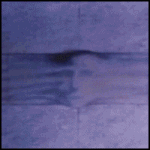A Very Short Cause and Effect Essay
When I think about the writer I have become, I must think about the literary influences of my youth. I loved to read mystery and science fiction novels. I would submerge my entire existence into reading and would become unaware of the happenings around me. It could best be likened to a hypnotic trance. The events described in great detail on the pages before me played out in my mind as if I were a participant in the story, or perhaps an observer at close range. The more outlandish and fantastic the plot, the further I became from my sometimes dismal, sometimes threatening existence.
The general theme of the science fiction stories that specifically influenced my writing style was that knowledge is power. In almost every plot, a character would solve some life-or-death dilemma with his or her power of knowledge. Descriptive scenarios of the impossible inspired me to expand my thinking from its taught, narrow origins. In a new universe of freedom, I could be anyone, anywhere, and anything could happen. I also developed an attraction to certain styles of science fiction writing that enabled me to learn new things and thus, feel empowered by the new knowledge.
Among the science fiction writers who influenced and empowered me were Arthur Clarke, Theodore Sturgeon and Isaac Asimov. I was exposed to these writers at a very early age, perhaps seven or eight years old. I don’t recall having any sort of writing style prior to this period. I was just learning what writing was about, and I adopted their styles of writing. In the novel I, Robot by Isaac Asimov, one of the main characters makes use of simple chemistry to not only solve the problem of robots running amuck, but to also save his and his colleagues life. He had deduced that “carbon monoxide plus iron gives the volatile iron carbonyl. And a robot is essentially iron,” Upon reading this, I wondered how the character knew of such things? Is this based on true science? Is this common knowledge I had yet to be exposed to? I found shortly after that such was the case. My style of writing became analytical because that’s where I saw the power in science fiction. I can recall writing science fiction stories at a young age in imitation of these writers. I wrote stories about robots wanting to be humans, humans who wanted to be androids, distant worlds of fantastic adventure and mystery. Central to the plot was always some fact based on science that was key in the theme of the story. I wrote of darkness and evil, of great conflicts, destruction and death. These story lines came from rage.
Rage was my motivation. Powerlessness caused my attraction to knowledge. It was a way of empowering myself, and I needed a survival instinct such as this to cope with my life. My father was an alcoholic and a physically abusive man. My mother was an enabler and practiced strong denial of the problem. The beatings came regularly, my self-esteem was driven to lower and lower levels. My escape was not to be found in the real world, only in the fantasy of reading and writing.
Mystery novels and stories also got my attention at a young age. I read many “Hardy Boys” books and would try to guess what would happen next in the plot, or how the story would end. Mostly, I was trying to solve the mystery that the story presented. Once I became familiar with the writer’s style, I got pretty good at guessing. I even tried my own hand at writing a few simple mystery stories.
My interest in mystery stories developed as another coping mechanism that could be used in my life for survival. If I got real good at guessing outcomes, I might be on guard for the next attack. I became hyper-aware of my environment (when I wasn’t reading). I developed keen survival instincts that served to protect me well.
At about age twelve I developed a strong interest in the Bible. It was, after all, much like science fiction and mystery to me. I became interested as a result of my early religious education. The Baptist Church taught from fear and punishment, two things that, by now, I knew a lot about because of the abuse I received. I reveled at the possibility of my parents’ punishment by God’s hand. What they did to me surely was a sin, and I took comfort in the belief that they would pay for it someday. I would spend hours trying to unravel the meanings of the symbolism in Daniel and Revelations, such as the breaking of the seven seals and the seven heads and ten horns of the dragon.
I believe this early influence expanded my mind to interests of a spiritual and philosophical nature later in life, and ultimately, thus far, the relationships between philosophy and science. I became interested in the writings of Plato, Heraclitus, Democritus, and more recently, Nietzsche, Pythagoras and Einstein. Philosophy seemed a more systematic approach to answer the eternal questions of the meaning of life and the cause of our existence, than did the Bible.
Searching for the answers about existence and God, I stay on the edge of my seat, waiting for an expected epic disclosure from deep understanding of these writings. It has not come in this expected way. I have come to view knowledge as a kind of difficult slog toward truth, inching so very slowly forward, and sometimes even backward. Seeking knowledge is personal. It is, in philosophical terms, theoretical and subjective. The very existence of truth and knowledge comes into question, right along with cause and effect.
I see my writing style as analytical, yet the words seem insufficient to convey clear meaning and impact. Its evolvement is too little, its descriptive details and examples lacking. My writing style is born out of great inspiration. Thus far, it has fallen far short of my perceived standard. Perhaps I feel this way because my literary influences were my images of greatness for my own potential. They were powerful. They gave me a way to survive in a hostile world, where as nothing else could. They produced magic results that transformed and healed my life. To imitate this literature seems almost an impossible task, as the cause is elevated infinitely by the effect.
Wednesday, August 1, 2007
My Writing Style
Labels: blog, blogger, science, technology
rage,
science fiction,
writers,
writing style
Subscribe to:
Post Comments (Atom)










I loved (and still love) science fiction growing up and I'm the same age as you so we probably had similar influences. Though, being female, it was not considered quite so normal to like science fiction. Ah, well. Glad to have discovered this blog--I've read your other one but not this one. You've got some amazing photos here.
ReplyDeleteThis is a wonderful story. It also seems to me the beginning of a story. I am on the edge of my seat, waiting to hear how the hero, who transcended much that was potentially catastrophic using little more than his mind, transcends the barrier he is currently facing. In literary terms, a crucible that perhaps could not have been survived was avoided, yet is one of a different kind now needed?
ReplyDeleteVera